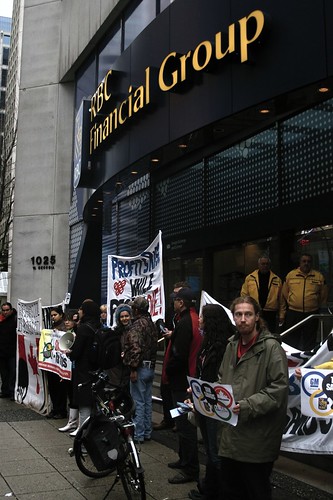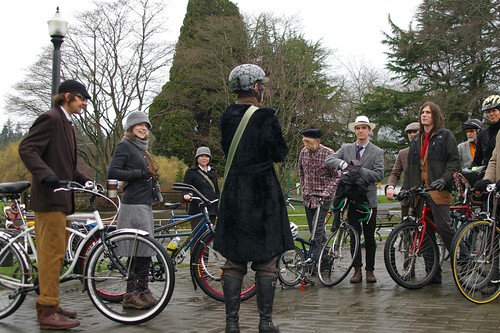

As the games began critics of these policies made their voices heard. When the Olympic torch arrived in Vancouver opponents took to the streets in large enough numbers that the torch had to be re-routed twice. And as the opening ceremonies began thousands marched through the streets for several blocks until they were finally stopped just across the street from the site of the ceremonies. People were in the streets for a variety of reasons including the social and financial costs of the games. But one of the prominent themes on protester's signs was the ecological costs.
Protests continued the following day. The media focused on the destruction that occured at the more militant protest but that action was not the only one in the region. Community leaders from first nations affected by the Tar Sands spoke to a crowd outside the RBC's main Vancouver branch. RBC is one of largest funders of the Tar Sands. In the suburbs another First Nations group temporarily blocked a bridge to protest the ecological damage done by that project. On a quieter note cyclists participated in Vancouver's first “tweed ride.” And campaigners dressed as polar bears prepared to be deployed.


The first few days of the games have brought above normal temperatures. But organizers and sponsors still seem to be a long way from taking responsibility for climate change.





No comments:
Post a Comment